When singer/songwriter Joni Mitchell woke up on the first morning of her 1970 Hawaii vacation, she looked out her hotel window and was heartbroken at the view: parking lots as far as the eye could see.
That inspired her to write “Big Yellow Taxi,” which quickly became one of the anthems of the burgeoning environmental movement.
The first line describes the problem: “They paved paradise, put up a parking lot.”
And the refrain points out how much we take nature for granted: “Don’t it always seem to go that you don’t know what you’ve got ‘til it’s gone.”
Thirty-eight years later, journalist Richard Louv coined the term “nature-deficit disorder” in his landmark book Last Child in the Woods. Since then, science has begun to catch up with folksingers and nature lovers in recognizing the benefits of spending time away from human-made environments and in natural settings.
The simple act of immersing yourself in nature can offer profound health benefits. Research shows that spending time in nature can reduce stress, improve mental health, and boost overall well-being.
In this article, we’ll explore the science behind “vitamin N” (for nature), discuss its benefits for mental, spiritual, and physical health, and offer practical tips on incorporating more nature into your daily routine, no matter where you live.
What Is Vitamin N?
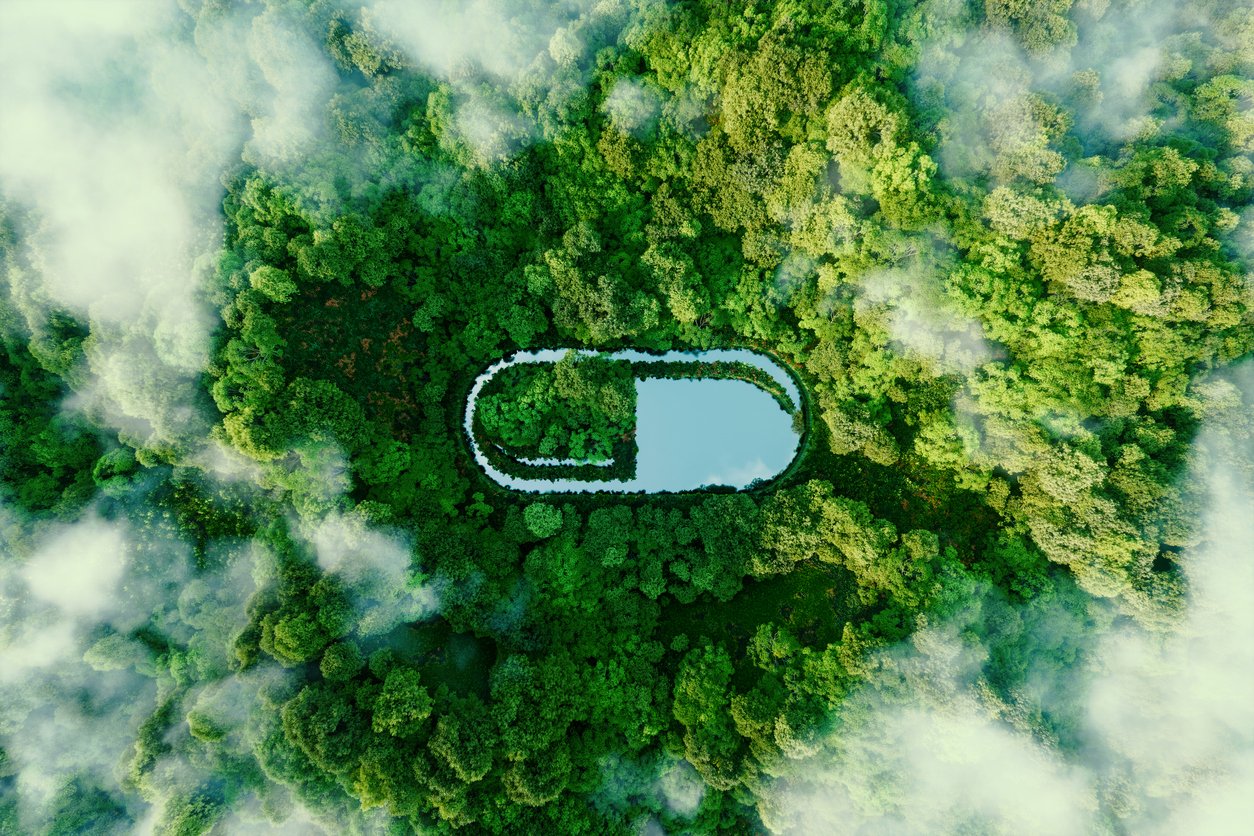
The term vitamin N comes from Richard Louv’s 2016 book Vitamin N: The Essential Guide to a Nature-Rich Life. Vitamin N is Louv’s playful way of describing the myriad health benefits of spending time in and interacting with nature.
Vitamin N comes in many different forms and doses. It can be as simple as a walk in a park or as involved as climbing a mountain. Nature offers rich sensory experiences that can calm your mind, restore energy, and promote healing.
As we spend more time on electronic devices and in human-made environments, getting out into nature is becoming increasingly important and harder to do as urban, industrial, and monocropped agricultural landscapes continue to crowd out the natural world.
Experiencing Awe in the Presence of Nature
I can personally attest to the power of nature. I was born in a one-room log cabin in the middle of the woods in British Columbia, Canada. There were only a few houses within a one-mile radius of our home, and we lived on a dirt road miles from the nearest store.
While some people might dismiss this as “the middle of nowhere,” I can assure you we were very definitely somewhere! And as far as I was concerned, our little cabin was a pretty good place.
I grew up without TV or movies and very few toys. But I grew up playing in the dirt, running through the forest, climbing trees, sledding in the winter, and munching on wild berries in the summer.
I didn’t know that all this was good for my health or that my microbiome was getting off to a very good start, but we now know it was.
There are many theories about why nature is so good for us, including microbial diversity, bird songs that suggest physical safety to our nervous systems, chemicals released by plants that trigger relaxation, exercise that tends to accompany natural world immersion, and simply a chance to unplug from the hyperstimulation and stress of devices and human inputs.
I want to add one other factor: awe. When surrounded by crashing waves, thundering waterfalls, towering sequoias, or even rabbits frolicking in a meadow, our hearts can expand with wonder. Evidence shows that recognizing we are part of something larger than ourselves can bring profound well-being and mental and emotional ease.
The Science Behind Nature’s Healing Powers
It’s not just an aesthetic issue, either. There is now a huge and growing body of research on the healing effects of nature.
Research has found that nature benefits us on multiple levels: physical, psychological, and even spiritual.
Physical Benefits

On the physical level, regular exposure to green spaces is associated with lower rates of chronic illnesses, including cardiovascular disease, obesity, compromised immunity, diabetes, and digestive issues.
Individual studies have linked nature — and especially green space — exposure to better birth outcomes, lower blood pressure, better health for people with congestive heart failure, better eyesight, higher quality sleep, less pain, fewer allergy and asthma symptoms, and a lower risk of death.
Studies show that hospitalized patients recovering from surgery also heal faster and better when their windows have views of greenery.
Spending time in nature — especially biodiverse spaces like forests, fields, and gardens — can increase the diversity of your microbiome and the resilience of your immune system.
And once people get out into nature, they tend to become more physically active, further amplifying its health benefits. “Green fitness” weds the benefits of both nature and exercise and is a rapidly growing movement (a “movement movement,” if you will).
In a nod to these findings, some medical professionals have begun prescribing nature as part of their treatment plans, a trend known as NatureRx. (In Canada, they’ve shortened it to PaRx, which is pronounced “parks” — clever!)
Psychological Benefits

Research is also finding a host of psychological benefits of spending time in nature, including less stress (accompanied or caused by reductions in stress hormones like cortisol) and decreased symptoms of anxiety and depression.
Multiple studies have also found that contact with nature increases reported happiness and life satisfaction, as well as prosocial behavior and connection to other people. It may also reduce aggression and even lower rates of violence and crime in neighborhoods.
Walking in nature can even make you smarter. A 2015 study found that a 60-minute walk in nature increased people’s working memory performance as measured by cognitive tests — volunteers who ambled through urban settings for an hour derived no such benefit.
Spiritual Benefits
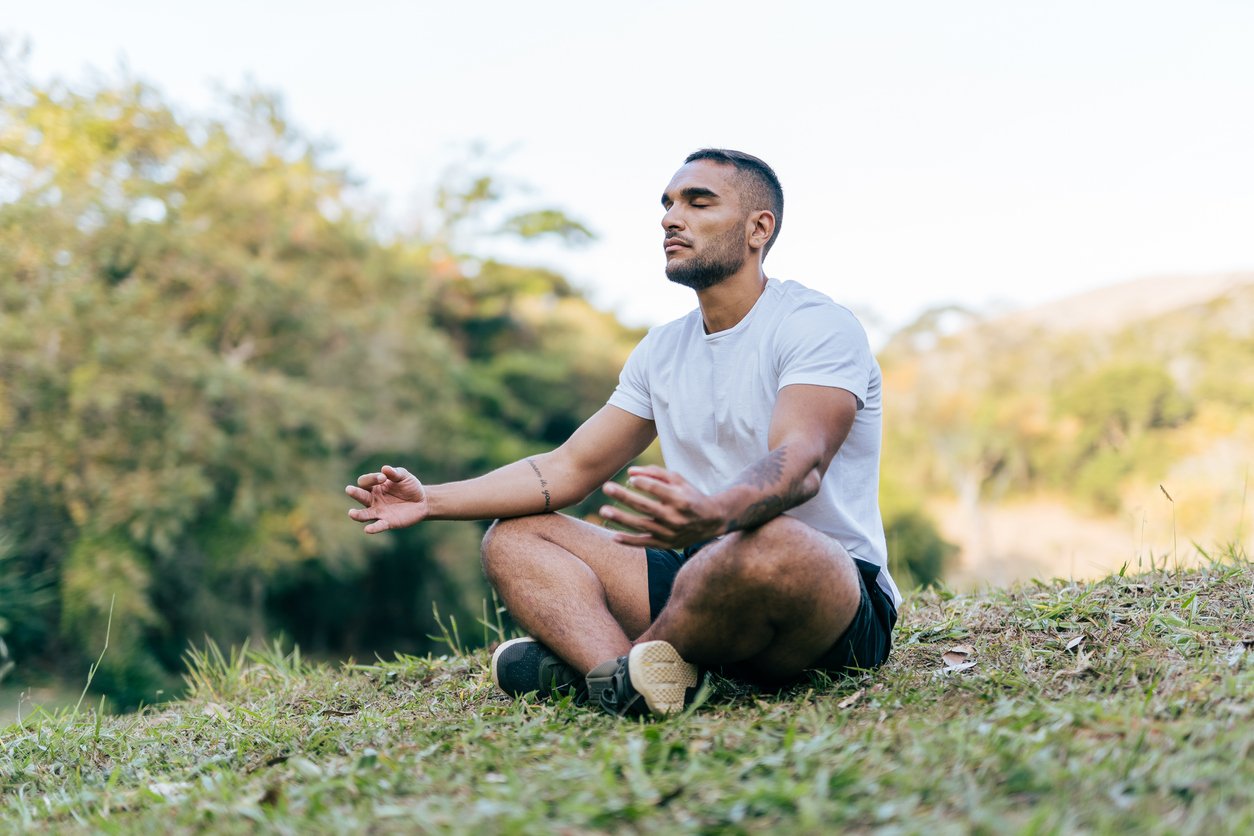
People who spend time in nature report an enhanced sense of belonging and connection (which may be one of the prime mechanisms leading to the psychological benefits we just discussed).
An added benefit for all of us is that people who love nature are willing to do more to protect and save what’s left of it — and maybe even begin turning parking lots back into paradises.
By encouraging self-reflection, appreciation, and gratitude for the natural world and our place in it, time in nature can also promote greater feelings of spiritual connection and a greater sense of meaning.
As environmentalist and poet Gary Snyder reminds us, “Nature is not a place to visit. It is home.”
Ways To Incorporate More Vitamin N Into Your Life
I’m already a very nature-y guy, yet once I started researching the healing power of nature, I got even more motivated to spend as much time outdoors as possible. If you’re feeling the same way, here are some ways to add more vitamin N to your life.
Outdoor Exercise
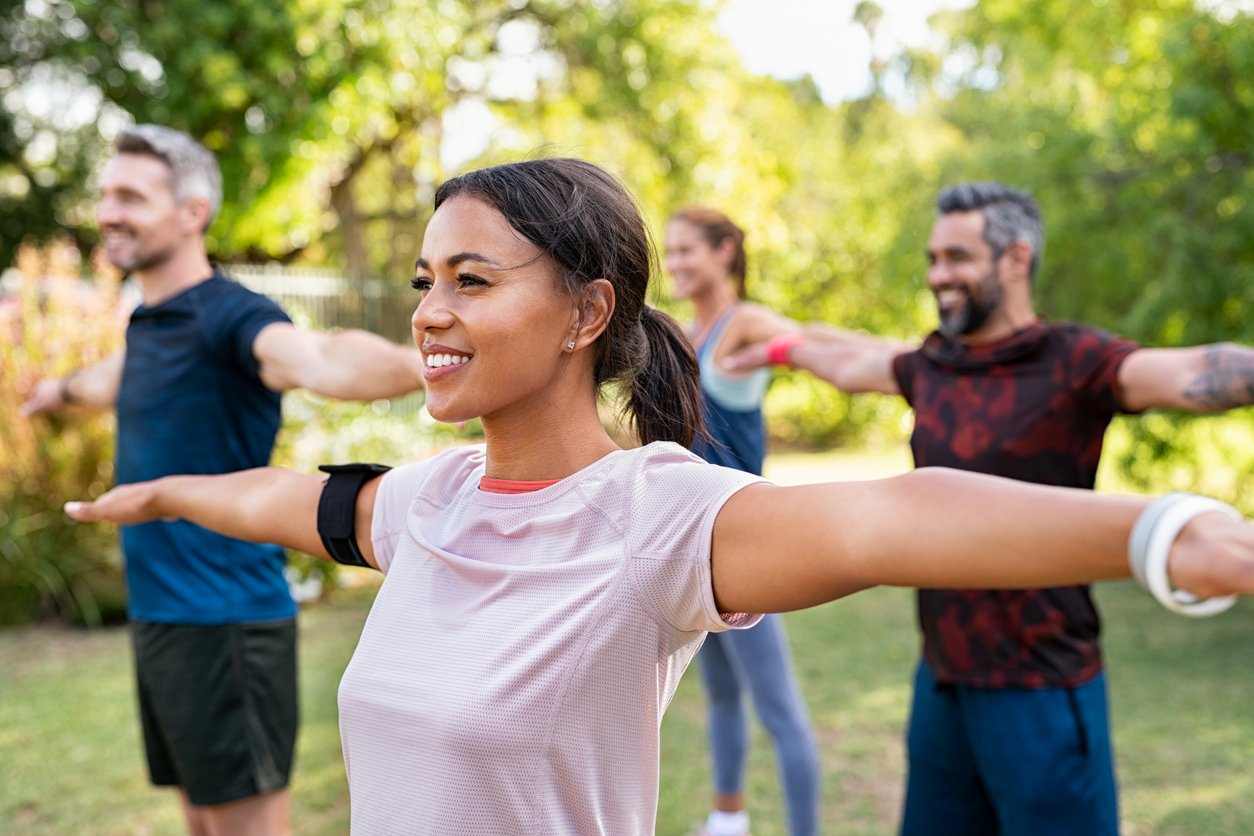
As we’ve seen, green exercise combines physical activity with time in nature, amplifying the benefits of both. Activities like hiking, cycling, or simply walking in a natural setting can be transformative for many people.
Getting into an outdoor exercise habit could profoundly benefit your mental and physical health.
Forest Bathing (Shinrin-Yoku)
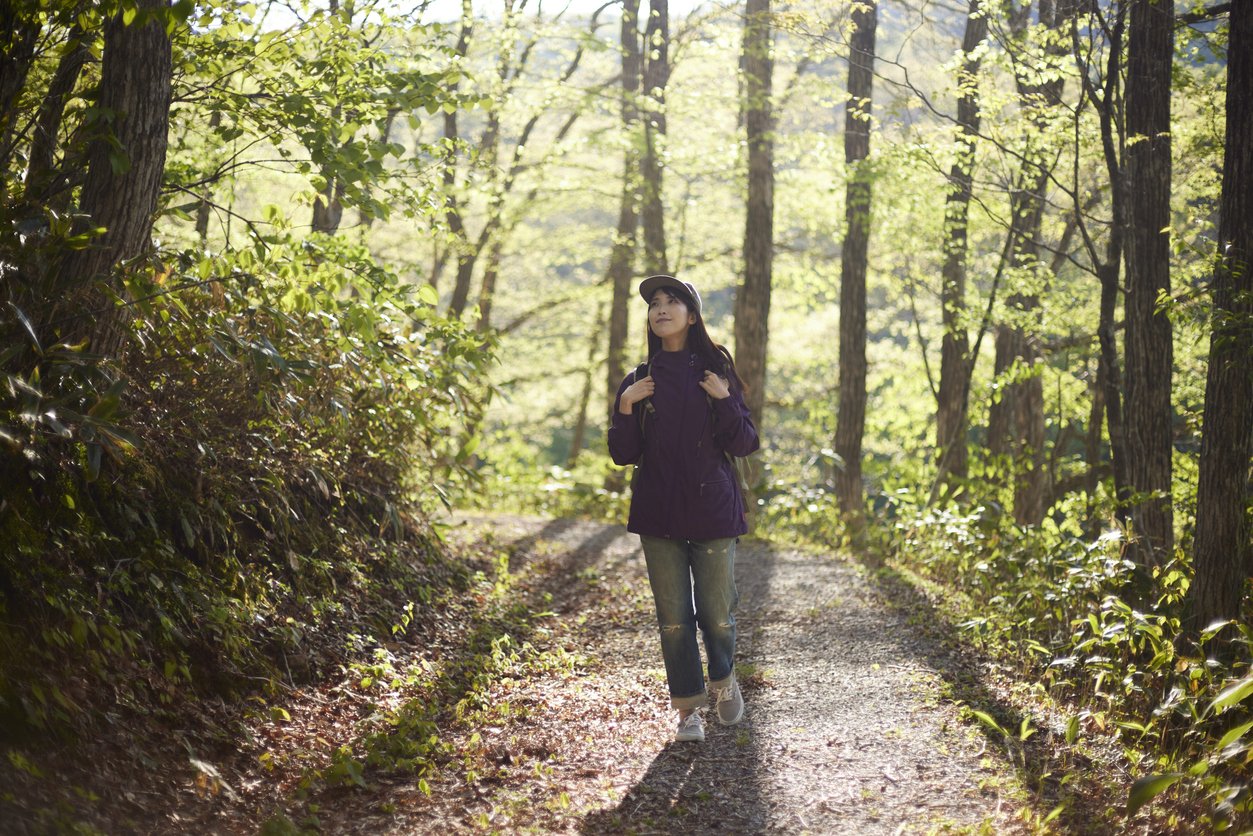
Shirin-yoku, meaning “forest bathing,” is a Japanese practice that involves mindfully immersing yourself in a forest environment. Studies show spending contemplative time in a forest can lower blood pressure, reduce stress, and improve mental clarity.
Gardening
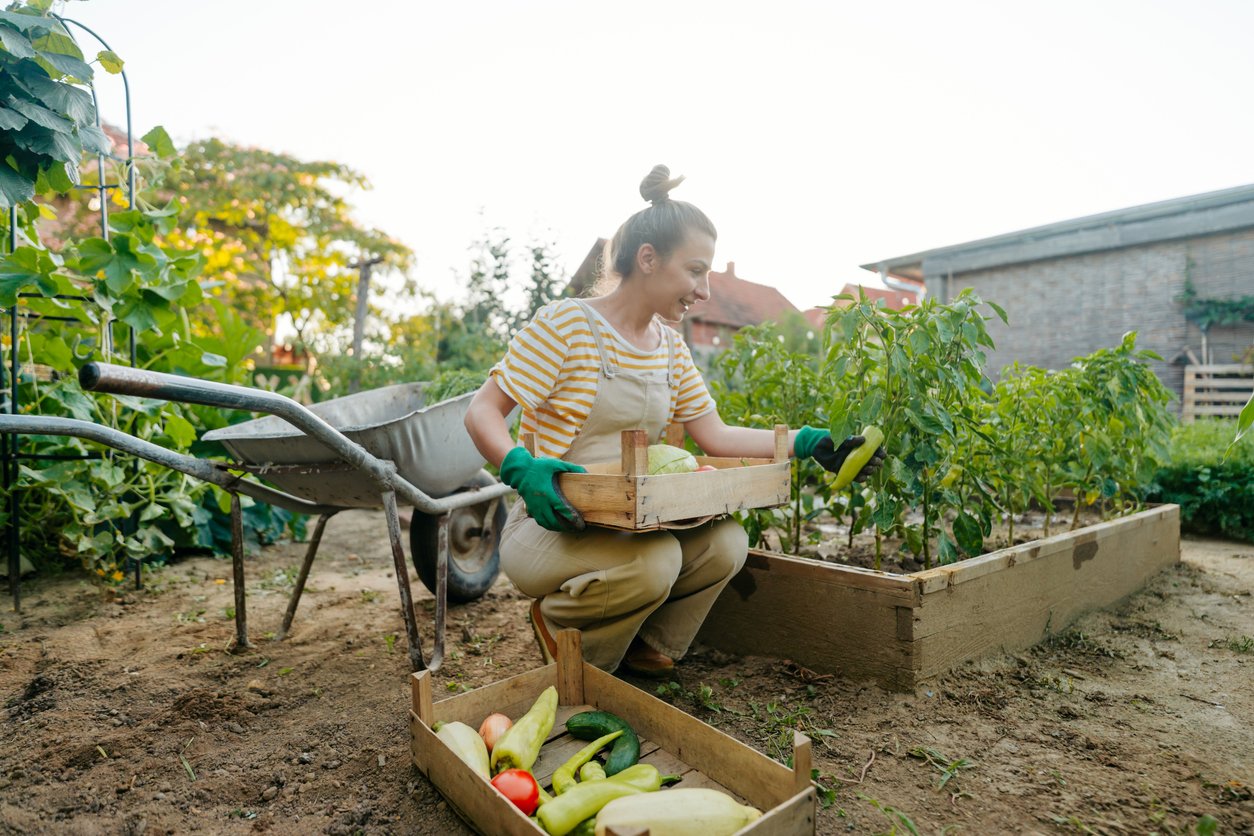
Tending to flowers, herbs, and crops is another way to engage with nature that can be incredibly therapeutic. Gardening can be a form of physical exercise (gentle or strenuous, depending on how you do it) and a mindful way to connect with the earth.
Learn more in our article, Why Is Gardening Good for You? The Benefits of Gardening for Health and Well-Being.
Dining Outdoors

Eating outdoors can give you a healthy dose of nature — complete with sun, sky, flowing air, birds, and, depending on where you are, potentially also trees, hills, plants, and vistas. If your home has a pleasant deck, balcony, or porch, you can make it a regular thing. A bonus benefit: you might be able to leave some crumbs for the birds, saving cleanup time!
Or you can also organize a picnic in a local park. (Here are some fun vegan sushi and kebab recipes to up your picnic game. For dessert, it’s hard to beat a juicy and crisp watermelon or a bunch of grapes. (Geez — I just made myself hungry.)
Weather permitting, and depending on location, you can also get some nature time by choosing outdoor seating at restaurants.
One advantage of eating in a natural setting, away from traffic, billboards, and screens, is that it’s more conducive to mindful eating.
Camping and Travel
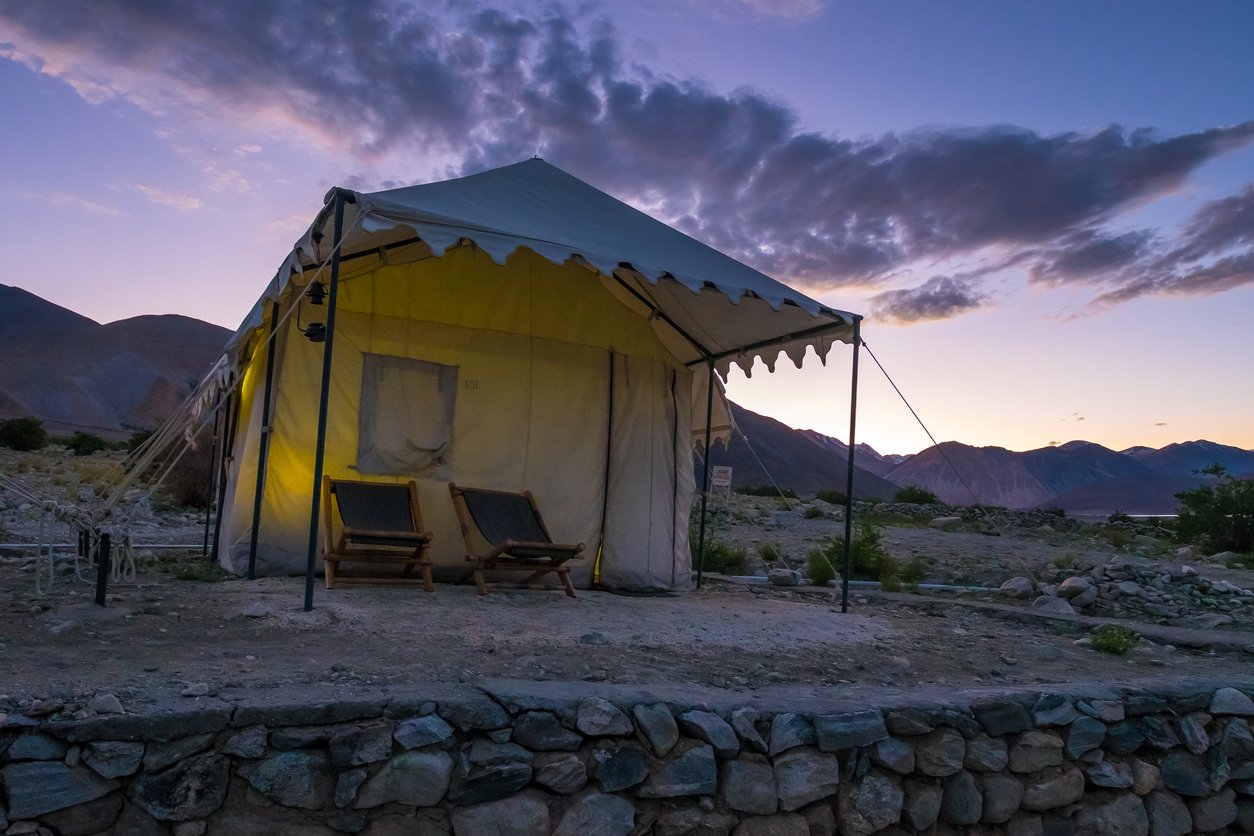
Camping and its upscale cousin, glamping (a delicious portmanteau of “glamorous camping”), are great ways to get more nature into your vacations. Rather than staying at a hotel or Airbnb, you can get away and sleep in the mountains, a forest, a park, or on a beach.
Camping can also be a highly sustainable way to travel.
Creative Practices
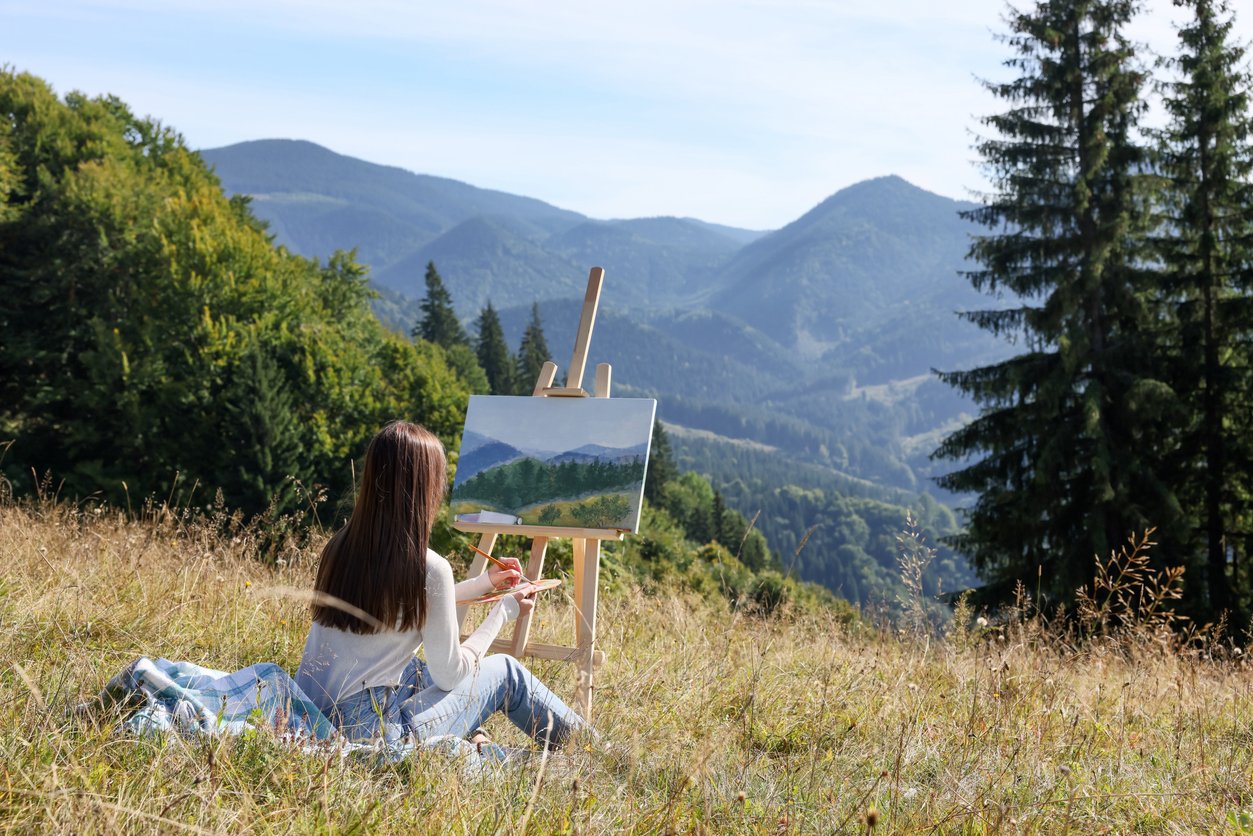
One way to experience more nature on a regular basis is to take your creativity outdoors. You might take a journal to the park and write poetry. Or bring a set of watercolors and a small easel and paint. You can even play music outside — although if you’re a beginner violin student, you may want to find a secluded spot!
Practicing creative expression outdoors can enhance the experience and the health benefits and feelings of well-being it provides.
Overcoming Barriers to Getting Your Dose of Vitamin N
These days, spending regular time in nature may take intention and effort. Finding green spaces can be challenging for people living in cities.
It’s not just geography that gets in the way; many of us are so busy that there isn’t enough time for long strolls in the park or two-hour drives to the wilderness. So it’s good that even short bursts of nature exposure, such as a 10-minute lunchtime walk, can still offer significant benefits. What’s more, even modest interactions with nature can be beneficial, such as tending house plants or visiting urban parks.
There are also seasonal challenges to consider. Weather can put a damper on being outdoors, depending on your preferences (and how extreme the heat, cold, wind, rain, snow, hail, or lightning might be!).
One solution is to find seasonal activities that work for you, such as winter sports (to keep your core temperature warm), autumn hikes with layers of clothing, or spring or fall gardening (before or after the summer heat). My personal favorite hot summer “hack” is wet clothes. They can function as a “personal air conditioner,” making me more comfortable in intense heat.
Some places, such as botanical gardens or conservatories, can offer some protection from the elements while remaining open air or full of nature.
Let Nature Heal You!
The power of nature to heal and rejuvenate has been recognized for centuries. In our modern world, it’s easy to forget the simple yet profound impact that spending time outdoors can have on our health.
Incorporating more vitamin N into your life doesn’t require dramatic changes — small, mindful interactions with the outdoors can improve mental and physical well-being. A simple walk in the park can leave you feeling more connected, calm, and revitalized.
Tell us in the comments:
- What are your favorite ways to spend time outdoors?
- What benefits do you get from being in nature?
- What’s one way you might increase your time in nature?
Featured Image: iStock.com/Jacob Wackerhausen



